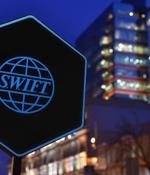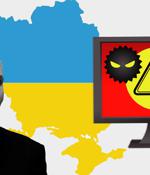Security News

Russia has reportedly blocked access to Western media outlets including the BBC to netizens within its borders, as suspicions rise that the country has begun implementing a "Splinternet" plan to seal itself off from the wider internet. These frequencies can be received clearly in Kyiv and parts of Russia.

Telegram messaging has taken a pivotal role in the ongoing conflict between Russia and Ukraine, as it is being massively used by hacktivists and cybercriminals alike. According to a report from cybersecurity company Check Point, the number of Telegram groups has increased sixfold since February 24 and some of them, dedicated to certain topics, have ballooned in size, in some cases counting more than 250,000 members.

Telegram messaging has taken a pivotal role in the ongoing conflict between Russia and Ukraine, as it is being massively used by hacktivists and cybercriminals alike. According to a report from cybersecurity company Check Point, the number of Telegram groups has increased sixfold since February 24 and some of them, dedicated to certain topics, have ballooned in size, in some cases counting more than 250,000 members.

A Swiss data centre operated by financial messaging service SWIFT is under guard by police following the exclusion of key Russian banks from the system. As we reported yesterday, the EU has agreed to bar certain Russian banks from SWIFT, the most widely used global financial messaging system.

Russia will consider any cyberattacks targeting Russian satellite infrastructure an act of war, as the country's space agency director said in a TV interview. Dmitry Rogozin, the current head of the Russian Roscosmos State Space Corporation, added that such attempts would also be considered crimes and investigated by Russia's law enforcement agencies.

Ukrainian news agency Ukrainska Pravda has claimed the nation's Centre for Defence Strategies think tank has obtained the online personal details of 120,000 Russian servicemen fighting in Ukraine. The Ukrainian news agency said the think tank obtained the personnel records from "Reliable sources." Whether or not the database is real, the impact on Russian military morale - knowing that your country's enemies have your personal details and can contact your family if you're captured, killed, or even still alive - won't be insignificant.

Microsoft on Monday disclosed that it detected a new round of offensive and destructive cyberattacks directed against Ukraine's digital infrastructure hours before Russia launched its first missile strikes last week. The intrusions involved the use of a never-before-seen malware package dubbed FoxBlade, according to the tech giant's Threat Intelligence Center, noting that it added new signatures to its Defender anti-malware service to detect the exploit within three hours of the discovery.

Phishing emails to Microsoft users warning of Moscow-led account hacking have started to make the rounds, looking to lift credentials and other personal details. That's according to Malwarebytes, which uncovered a spate of spam email that name-checks Russian hacking efforts.

Domain registrar Namecheap is emailing customers registered in Russia saying it will no longer provide them with services because of Russia's invasion of Ukraine. Namecheap also asked Russian users to move their top-level domains to other providers until March 6 and offered to help those who reach out for assistance with the move.

Domain registrar Namecheap is emailing customers registered in Russia saying it will no longer provide them with services because of Russia's invasion of Ukraine. Namecheap also asked Russian users to move their top-level domains to other providers until March 6 and offered to help those who reach out for assistance with the move.